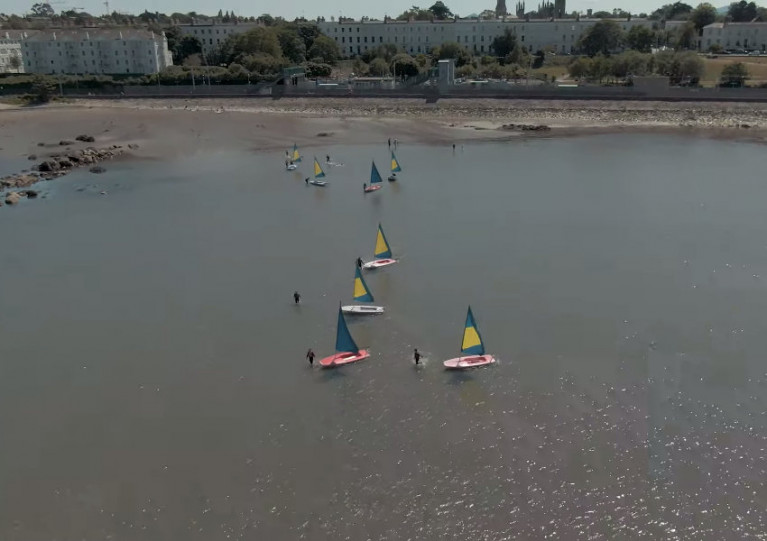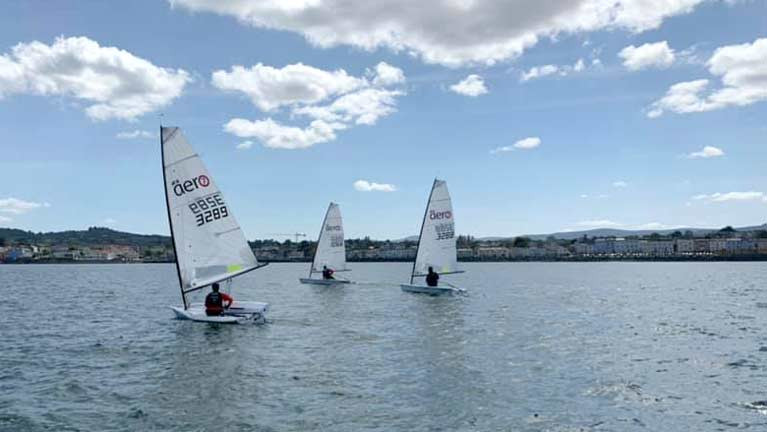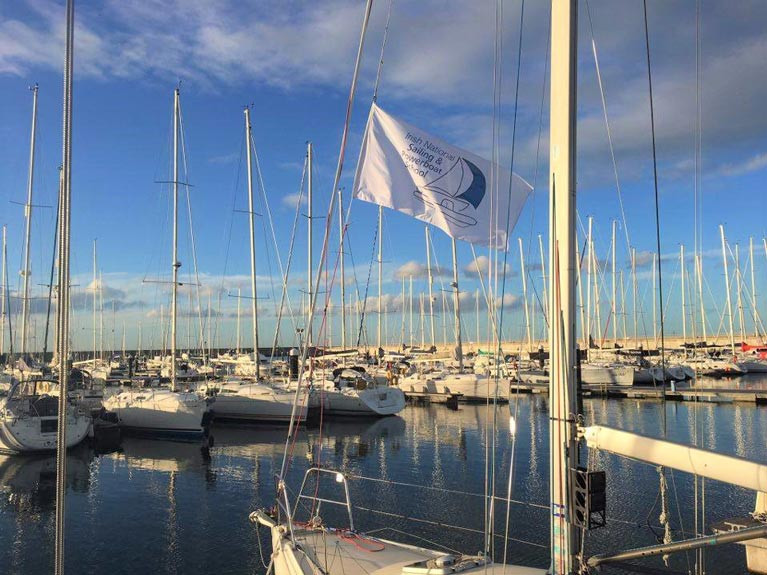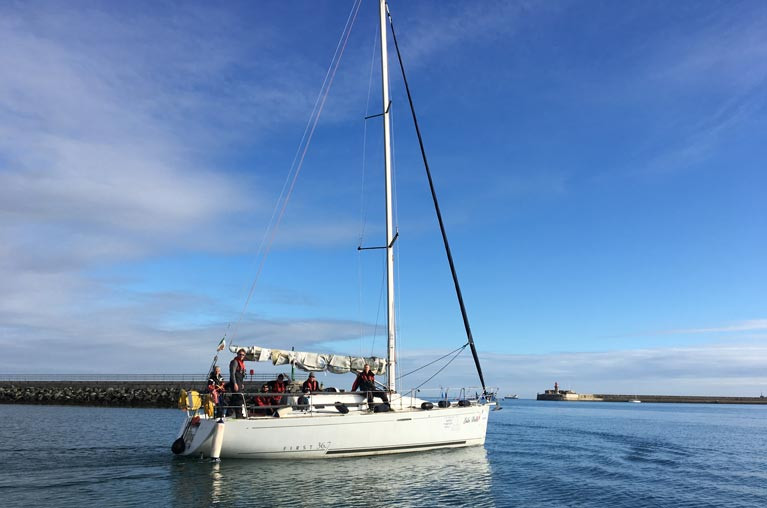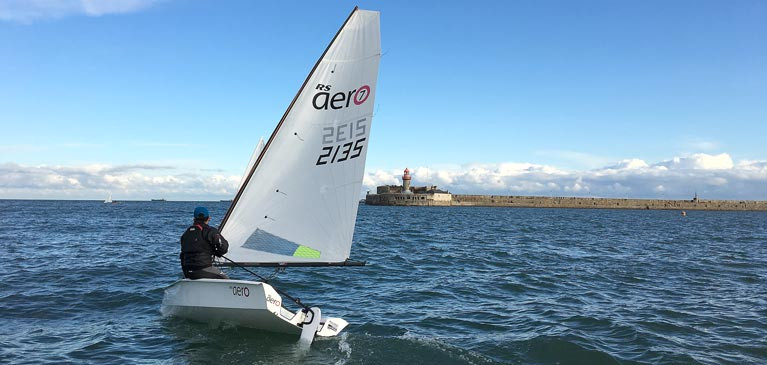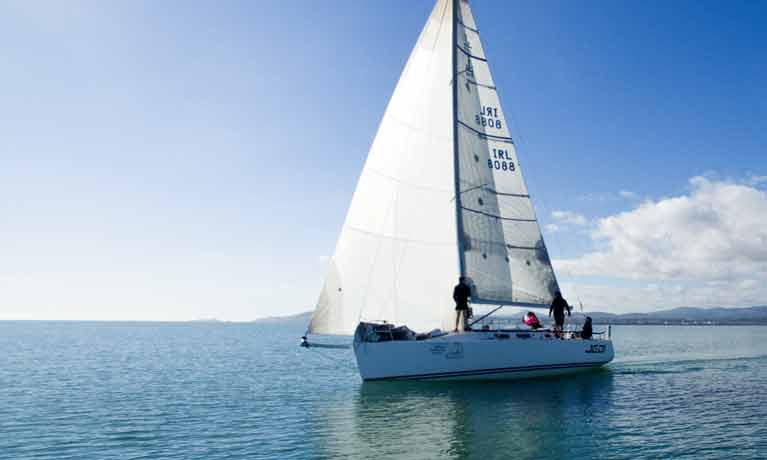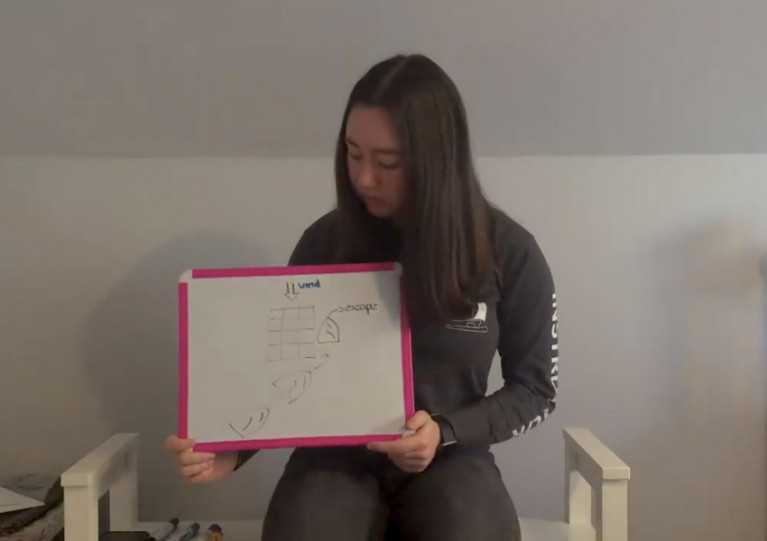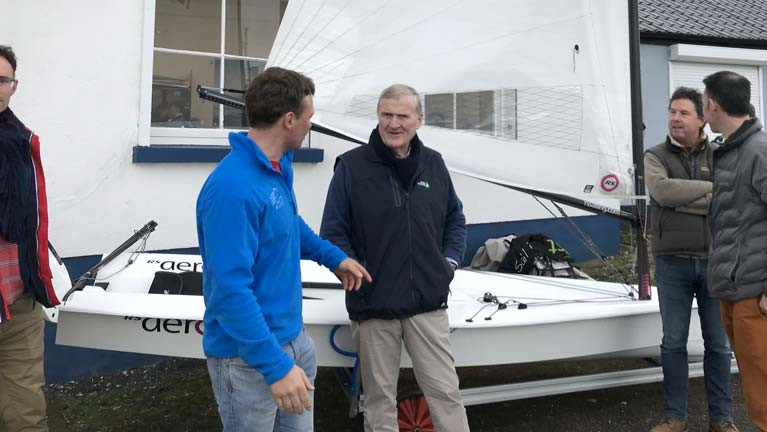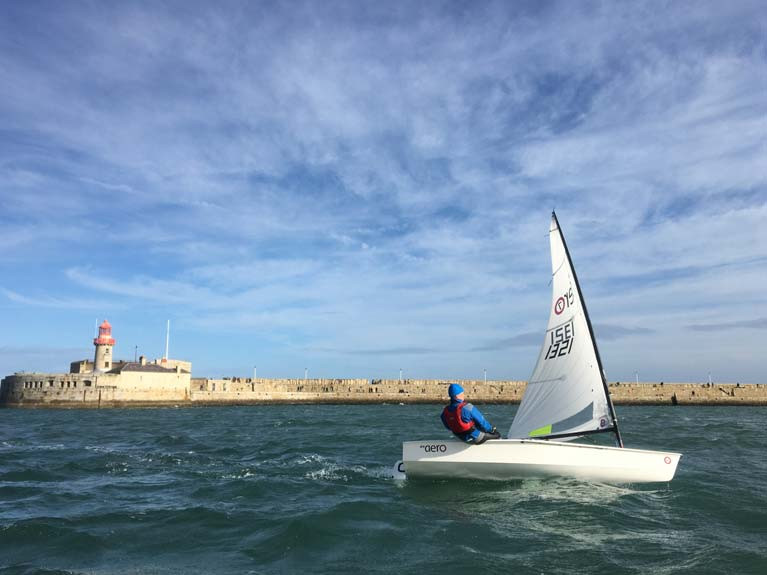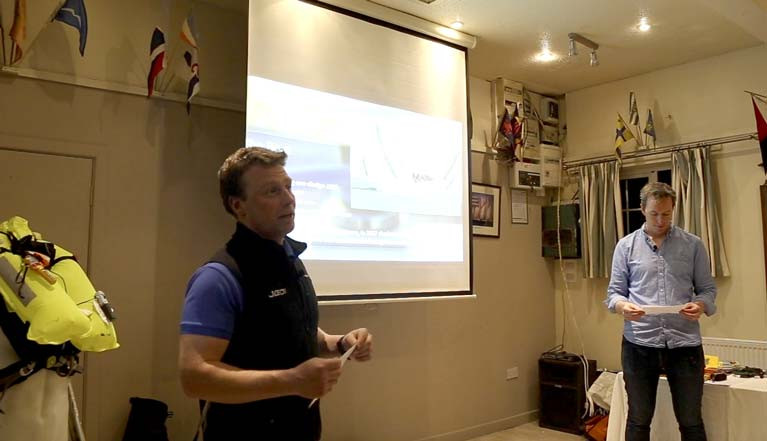Displaying items by tag: INSS
The Irish National Sailing and Powerboat School (INSS) is looking forward to the return of the Saturday Sailing programme for kids aged seven to 17.
After a successful summer implementing new measures in accordance with coronavirus restrictions, the programme will be structured to meet social distancing and group size requirements.
Friends will still be permitted to sail together — however, that pod will work together for the whole programme.
Single-handed sailing will be an important part of the programme, and small group sizes should enhance the learning opportunities. Children are also asked to come changed in wetsuits and head home in them.
Despite these adjustments, the INSS says it aims to keep the core aspects of the programme familiar, allowing for kids to have great fun afloat while learning and progressing one's sailing skills being the core elements — as the school’s video from earlier this summer shows.
For more details Saturday Sailing for juniors in the autumn and winter terms, see the INSS website HERE.
Fireball Aces Join RS Aero Dinghy Fleet
The Irish RS Aero dinghy fleet grew by six over the last week and a half. The class now stands at over 20 boats and the Irish National Marine Services team handed over one of the demo boats for a trial only this morning.
“We are delighted to welcome the latest Aero sailors to the Irish Fleet. With 6 new boats launched this week and more on the way the class is set for great growth in 2020 - our new owners bring a great mix of fun, enthusiasm and great racing skills", says Brendan Foley Chairman RS Aero Ireland Association.
Recent additions to the class include Karl Leavy of Swords Sailing Club, who took possession of his new boat just in time for the lockdown to hit!
 Karl (left) receives his new RS Aero from RS Sailing dealer Kenneth Rumball
Karl (left) receives his new RS Aero from RS Sailing dealer Kenneth Rumball
Only last week Rob Hastings of Bosun Bob’s delivered a new boat to Andrew Baker, while Irish National Marine Services supplied Fireball Aces Noel Butler and Stephen Oram a new boat apiece while Philip Trickett and Charlotte O’Kelly show how the various rig options can allow the whole family get use of the same boat! And it was only on Sunday when Daragh Sherridan took possession of his new Aero.
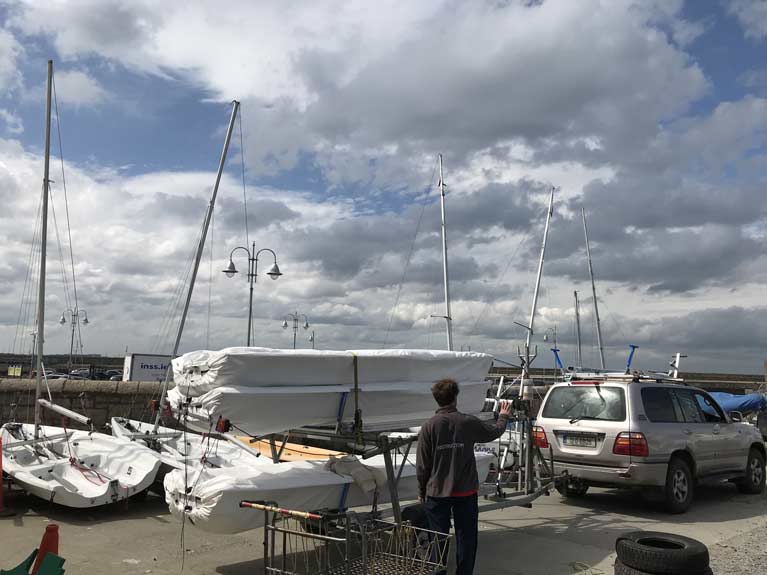 Three new Aero dinghies arrive in Dun Laoghaire Harbour
Three new Aero dinghies arrive in Dun Laoghaire Harbour
Currently, a large portion of the Dun Laoghaire fleet is based at the Irish National Sailing & Powerboat School while the sailing clubs are moving the cruisers off the decks. Indeed many of Dun Laoghaire’s dinghy sailors can call the coal harbour slipway home for a week or two, with regular sightings of sailors based on the Eastern side getting a taste of the marina fairway and “Hell’s Gates”. Glyn Williams of the Irish National Sailing & Powerboat School has been on hand as a safety boat operator for the Aero class and reports “Everyone is taking the new social distancing measures in their stride which is certainly encouraging for more activity afloat”.
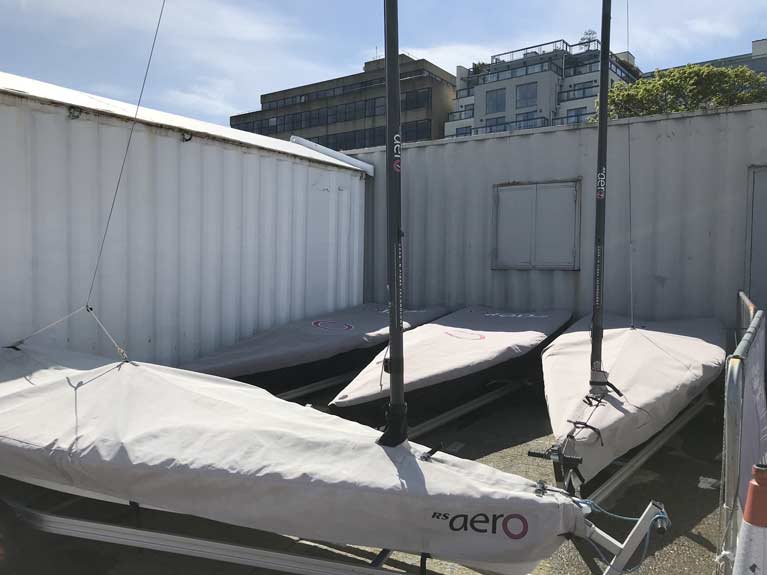 The temporary RS Aero Dun Laoghaire base nestled into the INSS patch in the Coal Harbour
The temporary RS Aero Dun Laoghaire base nestled into the INSS patch in the Coal Harbour
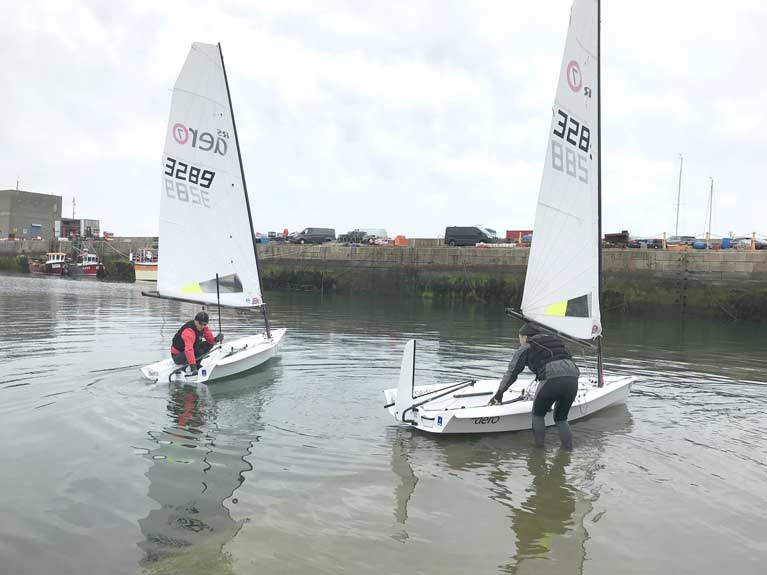 Fireball champions Noel Butler and Stephen Oram get afloat for the first time
Fireball champions Noel Butler and Stephen Oram get afloat for the first time
It’s now full steam ahead for the RS Aero Irish Open rescheduled to Saturday 19th and Sunday 20th September. While there has been some speculation as to why the date was chosen given the Laser Masters will be running the same weekend, the explanation is really rather mundane, it was when the RS Aero charter fleet was available. Enquires for charter Aeros can be sent to Kenny Rumball, [email protected], or to [email protected].
The gang all headed out on Sunday afternoon, making the most of the weekend’s excellent weather, with class chairman Brendan Foley providing RIB support as they got to grips with the new boats in Scotsman’s Bay. Some footage of the occasion was captured!
RS Aeros set sail on Dublin Bay - Video
INSS Begins Short Online Sailing Courses
The first in a series of short online courses at the Irish National Sailing & Powerboat School takes place this evening (Thursday) from 7 pm. Chief instructor Kenneth Rumball will be presenting a review of preparing a yacht for cruising or racing.
Next week, Kenneth will run a two-session course, on Tuesday 12th and Thursday 14th May running for two hours each evening covering “Skippering in Tidal Waters”. This course was specifically launched in response to feedback received by the school to their “Attitudes to Yacht Charter in Ireland” survey, where a number of respondents felt that Irish tides would be too much of a challenge compared to relatively easier waters of the Mediterranean.
The popular short course, Dinghy Race Tactics and Strategy, will run in an online format on Tuesday 12th, Wednesday 13th and Thursday 14th May for 2 hours each evening. Kenenth will lead the course and audience interaction and questions encouraged. Equally, although a camera or microphone is required to join - you can simply relax, view the slides and listen to the presenter as he explains both rules and strategy, and how it applies to real-life scenarios.
The courses are open to all, and everyone is welcome. Families are encouraged to all join in from one booking and the team at the school are looking forward to seeing everyone, even if only online for now!
Link to courses here
Irish National Sailing School Keen to Grow Irish Yacht Charter Fleet at Dun Laoghaire Harbour
The Irish National Sailing School (INSS) at Dun Laoghaire Harbour is taking the next steps to get domestic yacht charter up and running in the east coast port.
Following a survey launched earlier in April, the INSS believes that there’s sufficient demand to have a domestic charter fleet up and running for August, on into the winter and ready for the 2021 season, driven in part by a reluctance to travel abroad caused by Coronavirus.
The school is making its two yachts available, however, capacity will quickly be met in light of the demand for the boats on the training courses. So, instead, they’re hoping that owners based on the East coast will work with them, on a profit share basis, with the school managing administration, handover, dealing with any issues during the charter and receiving the boat back and ensuring it's handed back to its owner in full working order as well as being spick and span!
The school, run by Kenneth Rumball, has been in contact with insurance providers, and upgrading cover is typically a small increase on premium. The owner would receive over half of the charter fee, and schemes in operation elsewhere usually cover the yachts annual running costs. Effectively it can be viewed as free annual boating.
Starting small, Rumball details how he sees the whole concept developing “Initially, we’d like to work with two or three owners based between Dun Laoghaire and Greystones. Interest from further afield is welcome”. The school’s survey indicates that boats in the 35-45 foot range are most likely to work in the Irish market.
A prospectus is available for interested yacht owners.
Rumball is keen to chat with any prospective owners. Tel: 01 2844195 or by email directly to [email protected]
“Today we should be reporting on a fantastic first event for the RS Aero in Ireland. The Irish National Sailing & Powerboat School was due to host the inaugural RS Aero Open last Saturday 2nd and Sunday 3rd of May in Dun Laoghaire Harbour, with a strong fleet of over 20 boats from the UK, roughly 20 Irish boats and roughly 10 RS Aeros available for charter between RS Sailing and the Irish Supplier Irish National Marine Services”, laments Glyn Williams of the Irish National Sailing & Powerboat School.
The RS Aero calendar has, like everything, had to adapt to the coronavirus situation. The class has elected for a new date on Saturday 19th and Sunday 20th September, to fit into the currently remaining dates in the RS calendar, and the pressures on the RS Sailing Aero Charter Fleet, which is in hot demand across Europe later this year.
"sailing’s best bet for dealing with coronavirus is to get back to basics"
Irish RS Aero Class Chairman Brendan Foley is optimistic. “As we all look forward to emerging from our isolation from each other and the water, I am really excited by the number of questions I’ve been getting about the Aero. With a massive focus on single-handers, it looks like this year will be a real turning point for the Aero fleet in Ireland - if you are sitting on the fence and thinking about a new boat, go for it. It will be great for your mental health and well-being. I know I’m keen as mustard to get back out in my Aero. I would also ask prospective sailors to join the RS Aero Ireland Facebook group and the global Facebook group to see what a friendly and progressive fleet this is. I’m happy to answer any questions on the Aero - pop them on the comments below or PM me on Facebook. Stay calm, stay positive and get ready to sail!”
Back onshore, RS Sailing dealer, Kenneth Rumball has been preparing the three Aeros in the Irish National Marine Services stock. Kenneth reports a significant upturn in enquires about the boat since the lockdown began, something he attributes to the expected boom in single-handed dinghy sailing. “The Aero is perfect for those who are looking to get back into dinghies, the ergonomic hiking position, higher boom and centre mainsheet make sailing a breeze”. There are even a few lockdown discounts on the stock boats. The latest Aero ready to go 3187, is shown in the video below, and Kenneth points out the features making it an easy dinghy to get back afloat in.
Kenneth and Glyn feel that sailing’s best bet for dealing with coronavirus is to get back to basics. “Get out on the water and enjoy yourself, either in a single-handed dinghy, or with the family,” says Kenneth, while urging caution to do so responsibly. To this end, the Irish National Sailing & Powerboat School is going to make its COVID-19 single-handed dinghy operating procedure available for all to take ideas from. According to Glyn Williams “It's about ensuring that activity happens safely and that no one takes risks resulting in the need for Lifeboat or Coastguard intervention, exposing these volunteers to risk. We’re in the process of examining the risks, what control measures can be taken and how to manage any issues that arise in a manner that does not allow for disease spread”.
Both are hopeful that straightforward, sensible actions can facilitate a return to sailing and getting afloat to enjoy the water while we await a return to what could be considered a more normal set of activities.
There’s a demand for short term, easily available yacht charter on Irish waters, that's according to a survey conducted earlier this month by a Dun Laoghaire Harbour Sailing School.
As Afloat reported previously, the Irish National Sailing & Powerboat School in Dun Laoghaire Harbour asked those who might usually head abroad for a charter holiday what their intentions were in light of the Covid-19 epidemic.
The main aim was to see what could be done to help the domestic marine industry and get a conversation going, with actions flowing quickly.
The concept was rooted in stimulating the domestic charter market especially as family activities on a yacht may be one of the few activities that can safely get afloat this year.
Between speaking to their previous graduates from the last few years, and with help from afloat magazine data and suggestions started coming in from a very short survey.
Over 40% of respondents indicate they would be less likely to travel overseas to charter, with more than 50% indicating they would be more likely to do so in Ireland. Commenting on the figures, Communications and Marketing Manager Glyn Williams describes them as “Hardly surprising, but being able to a figure on it is great, but equally, we got plenty of insight into what barriers there are to chartering yachts, as well as some brilliant suggestions”.
What Barriers Exist for the Irish Yacht Charter Market?
The school found that the top factor considered a barrier to chartering was the value for money proposition. Equally the yacht availability, flexibility on charter duration and the clear display of this information was raised.
"Biggest barrier to chartering was the value for money proposition"
Yacht and service quality ranked next and tied into the value for money question. According to school chief instructor Kenneth Rumball, “Undoubtedly, professional management and rapid support will deal with many of these concerns, as it’s very unlikely the Irish industry would match the age and cycling of vessels in more established charter destinations”.
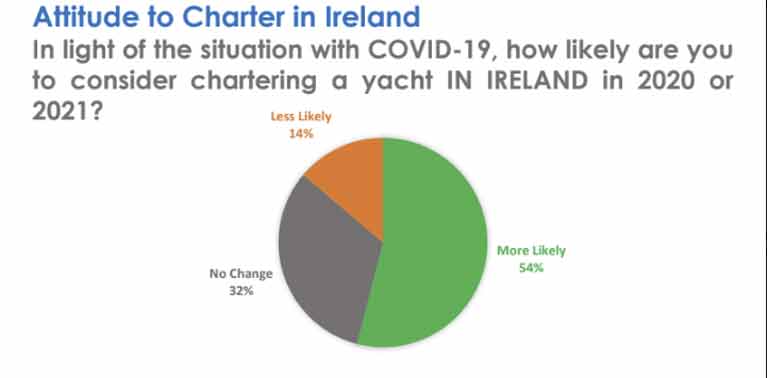 (Above and below) results from the INSS Yacht Charter survey taken during the COVID-19 epidemic
(Above and below) results from the INSS Yacht Charter survey taken during the COVID-19 epidemic
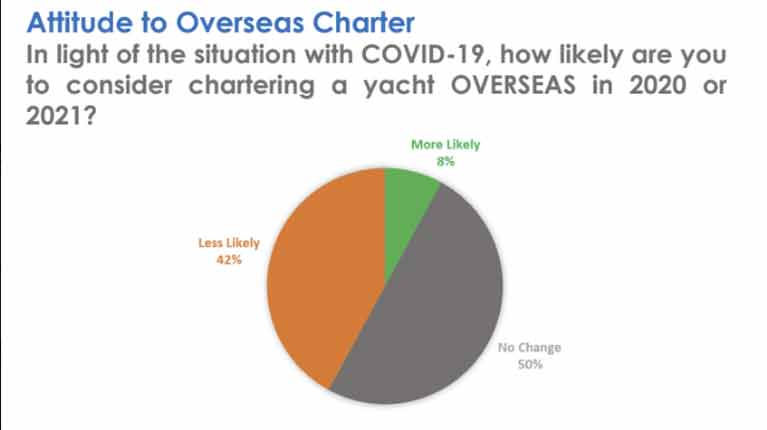
Perceptions of skipper’s own knowledge gaps was the next most common concern. We’re competing against destinations with well-established routes, excellent marina networks and more importantly, no tides. The school is well placed here to help, according to Kenneth “training is our business, this is something we propose to address with short theory courses and tailored client support”.
Interestingly, the gaps in the marina network didn’t feature as a major concern according to Glyn. “There’s a demand for short term, easy entry charter. This doesn’t take away from calls for more infrastructure development around our coast but shows that we can grow this concept with what’s already available”.
By this stage of this article, you’re probably screaming at your screen “What about the weather!”. Glyn’s response, “Well, it certainly came up, but not nearly as much as you’d have guessed. Instead, it was framed in terms of value for money and what could be offered by providers to accommodate the Irish climate”.
What’s next?
When asked about developing the concept from the school’s perspective, Kenneth is optimistic. “We train about 300 yacht graduates each year, and the vast majority do the course to access the charter lifestyle. With some clever and targeted supports, we can easily convince those to holiday at home, especially when personal skills development can be listed as a benefit alongside spending time with the family, or partner”.
Rumball feels collaboration will be important. “We’ve already got a great relationship with James Lyons from Sovereign Sailing, and we’ll continue working together behind the scenes to advance the concept”. Other interested parties are invited to get in touch with the school.
Moving forward, the school is calling for interested yacht owners who may be interested in working with the school to expand the concept on the East Coast. Profit-share arrangements work elsewhere, participating owners typically cover all annual costs, from insurance, mooring fees and ongoing maintenance. Rumball characterises it as essentially free yachting for the owner and proposes a concept where the Irish National Sailing & Powerboat School would manage bookings, administration, maintenance and all the logistics. The school has already been in contact with prospective insurers and has found premiums only typically rise around 40% to cover the charter element.
Owners can contact Kenneth Rumball by email, [email protected], or call the school’s office on 01 284 4195 for more details and a full breakdown of the proposals.
This past Monday (30 March), the Irish National Sailing & Powerboat School launched Sailing School from Home — a series of free short theory lecture videos on topics ranging from kids’ sailing to powerboating, yachting and shore-based programmes.
“We hope that those missing the water can get something from what we’ve got in store, and that they’ll help everyone once we’re all back afloat,” the Dun Laoghaire-based school said in its Facebook post introducing the initiative.
The first in the series, released on Monday, is an introduction to electronic navigation delivered by chief instructor Kenneth Rumball. This was followed yesterday (Wednesday 1 April) by dinghy instructor Fiona Hederman explaining the coming alongside manoeuvre.
Kenneth Rumball has also shared a wide range of his favourite sailing videos to tide you over until the next lesson.
And before the week’s end, the INSS intends to launch a full resource pack on INSS.ie mainly for Junior Club Saturday sailors, detailing the entire theory syllabus of the junior sailing scheme.
Irish Sailing President Jack Roy got proceedings underway at the RS Aero Open Day last Saturday morning. The event was hosted by the Irish National Sailing & Powerboat School in conjunction with the RS Sailing agent in Ireland, Irish National Marine Services and the new class association.
“We were delighted with our first RS Aero Open day hosted by the INSS and Kenny Rumball. Irish Sailing President Jack Roy was very impressed by the boat, Mark Gavin who kindly loaned his boat as a demo had to convince Jack that the boat was in fact six years old so good is the build quality that it looked as good as new.
Kenny Rumball reported that "it was brilliant to see people of all ages trying out the boat from Oppie sailors to lifetime Laser sailors looking for something more rewarding". "All came back in with one thing in common – a smile on their face!", he said. The 5 and 7 rigs proved to be a great hit with people and they loved the instant speed.
The most consistent feedback on the RS Aero was around three areas;
- fun with instant acceleration
- excellent build quality and systems
- stability in strong winds
Brendan Foley, Chairman of the RS Aero Ireland Association said: "We look forward to the class continuing to grow and to seeing lots of new sailors on the water enjoying this truly exceptional dinghy.”
The classes next big outing will be the RS Aero Irish Open, taking place on Saturday 2nd and Sunday 3rd of May, hosted by the Irish National Sailing Club from Dun Laoghaire.
A strong contingent of UK based boats is expected, and there are new boats in stock here in Ireland that will be ready in time for the event.
A short video of some of the action can be seen here. The Irish class already is 17 strong, and off the back of the Open Day, those numbers are expected to rise.
2020 Irish RS Aero Dinghy Calendar Expands
The Aero class has increased in Ireland to such an extent that there are now 17 boats regularly sailing and the solo class has been invited to participate in a number of RS events around the country hugely increasing racing opportunity, according to agent Kenny Rumball.
The RS200/400 fleets have welcomed the Aero to participate in the following events;
- RS Southerns – Baltimore – 16th and 17th May
- RS Westerns – Galway – 4th and 5th July
- RS Northerns – Carrickfergus – 15th and 16th August
This adds to the RS Aero Irish Open, taking place on Saturday 2nd and Sunday 3rd May in Dun Laoghaire, where a charter fleet from RS Sailing is confirmed. The event is being supported by Irish National Marine Services, the RS dealer in Ireland, and hosted by the Irish National Sailing & Powerboat School. Considerable UK interest is reported for the event, which will be used as a showcase for the Aero in Ireland.
The burgeoning Irish RS Aero Class Association welcomes the UK interest, and indeed commends the considerable support from well known UK based Aero sailors in supporting the event. The group is hoping to attract as many Irish entries as possible, and will help Irish sailors by directing them to the charter options available, and offer a few hints and tips.
Indeed, the Irish Class Association will be present at the upcoming “Try the RS Aero” Open Day at the Irish National Sailing & Powerboat School on Saturday the 7th of March from 10 am-1 pm. There will be three RS Aeros available for anyone with an interest in the boat to give it a go for free. The 5, 7 and 9 rigs will all be available, along with on the water support from members of the class association. Anyone interested is asked to contact the INSS office on 01 2844195 or [email protected] to aid with planning.
Describing the logistical support behind the push to expand the class this year, Kenneth Rumball says “ Irish National Marine Services is committed to supporting the growth of this class. In stock are two brand new boats, as well as two demo boats. We’re convinced of the potential for a lightweight, fun, comfortable single hander like the Aero, particularly suited to the weather conditions we experience here.”
Word from Aero sailors in Ireland echoes the “fun” element of the boat, with Dun Laoghaire sailors testing the Aero out in big breeze a couple of weekends ago in the harbour.
Round Ireland Yacht Race Man Overboard Recovery (Lecture Video)
It was about 1 am off the coast of County Kerry when John White came off the helm of Jedi, a J109, competing in the 2018 Round Ireland Yacht Race. Facing 30-knots on the nose and three to four metre seas, as White moved forward, a large wave crashed over the boat, knocking him overboard.
White joined helmsman Kenneth Rumball to share their learnings from the successful recovery of John, a fate that lead to Kenneth being awarded the RORC Seamanship Trophy.
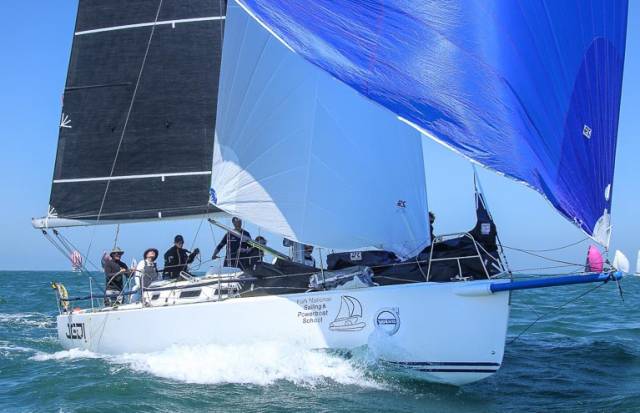 The INSS Jedi competing in the 2018 Round Ireland Race. Photo: Afloat.ie
The INSS Jedi competing in the 2018 Round Ireland Race. Photo: Afloat.ie
Both describe in detail the key points they think lead to the successful recovery of John, proper preparation, pre-sailing drills, sufficient training for all the crew and ultimately having the right gear, as well as knowing how to use it.
White describes the surreal experience of being away from the boat, and the exemplary Seamanship exploits undertaken to retrieve him safely, and indeed get back racing. Rumball shares his experiences as Skipper but emphasises how the training he provides in the day job as chief instructor at the Irish National Sailing & Powerboat School kicked in. A frank and sobering discussion on the good fortune it was to correctly install AIS MOB devices, ensure that everyone had the latest lifesaving kit is undertaken.
This is a must-watch for any skipper or crew member who races offshore but would appeal to a wider audience with an interest in yachting as John and Kenneth recant the compelling story, which thankfully had a happy outcome.
The video (above) is divided into chapters as follows:
- Preparation - 2 mins 30 seconds
- Build Up - 14 mins 20 seconds
- Man Overboard - 20 mins 20 second
- The water - 30mins 20 seconds
- Gear - 34 mins 40 seconds
- Recovery - 51 mins 00 seconds
- Rest of the Race - 1 hour 10 mins 40 seconds


























